Related Research Articles
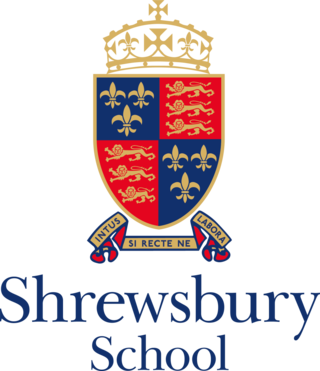
Shrewsbury School is a public school in Shrewsbury.
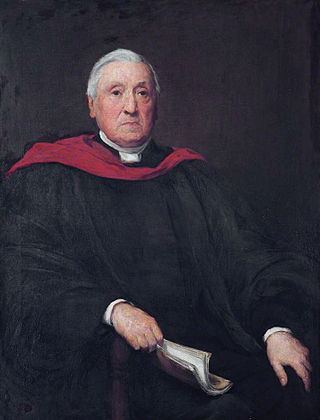
Benjamin Hall Kennedy was an English scholar and schoolmaster, known for his work in the teaching of the Latin language. He was an active supporter of Newnham College and Girton College as Cambridge University colleges for women.

Colchester Royal Grammar School (CRGS) is a state-funded grammar school in Colchester, Essex. It was founded in 1128 and was later granted two royal charters - by Henry VIII in 1539 and by Elizabeth I in 1584.

Samuel Butler was an English classical scholar and schoolmaster of Shrewsbury School, and Bishop of Lichfield. His grandson was Samuel Butler, the author of the novel Erewhon.

Lawrence Humphrey DD was an English theologian, who was President of Magdalen College, Oxford, and Dean successively of Gloucester and Winchester.
Christopher Wase was an English scholar, author, translator, and educator, who was the Architypographus of Oxford University Press for several years.
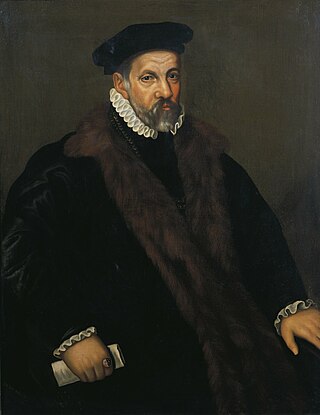
Thomas Wilson (1524–1581), Esquire, LL.D., was an English diplomat and judge who served as a privy councillor and Secretary of State (1577–81) to Queen Elizabeth I. He is remembered especially for his Logique (1551) and The Arte of Rhetorique (1553), which have been called "the first complete works on logic and rhetoric in English".

Francis Tallents (1619–1708) was a non-conforming English Presbyterian clergyman.

Thomas Seward was an English Anglican clergyman, author and editor who was part of the Lichfield intellectual circle that included Samuel Johnson, Erasmus Darwin and his own daughter Anna Seward, amongst others.

Godfrey Goldsborough was a Church of England clergyman and Bishop of Gloucester from 1598 to 1604. He also served as a Prebendary of Worcester.
Arthur Yeldard (c.1530–1599) was an English clergyman and academic, chosen as the first Fellow and second President of Trinity College, Oxford.
Thomas Newton was an English clergyman, poet, author and translator.
John Stockwood was an English clergyman, preacher, translator of Protestant texts and school-master.
Thomas Bradshaw was an English poet, the author of The Shepherd's Starre, published in 1591.
John Bromley was an English clergyman, Catholic convert, and translator.
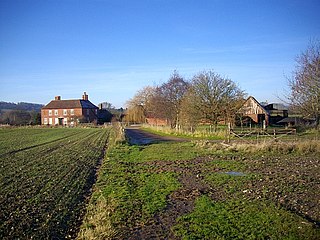
Henry Bright was a clergyman and schoolmaster in Worcester. He served for 38 years Headmaster at The King's School, Worcester, and is mentioned by Thomas Fuller and Anthony Wood as an exceptional teacher, particularly of Latin, Greek and Hebrew. The period was at the height of Neo-Latin writing and Latin medium teaching. Many of his pupils are notable for their faculty in Latin and Greek and their impact on theological matters.
John Meyrick, M.A. was an Anglican clergyman who served in the Church of England as the Bishop of Sodor and Man from 1576 to 1599.
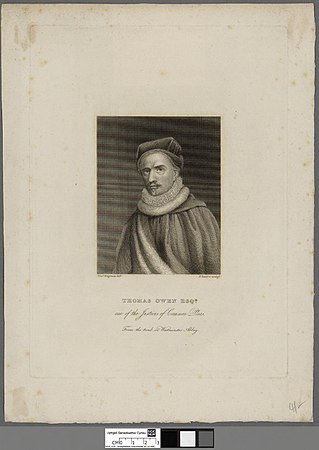
Thomas Owen was an English judge and politician in the reign of Elizabeth I.
Thomas Braddock or Bradock was an Anglican clergyman of the 16th century, Headmaster of Reading School from 1588 to 1589 and a translator into Latin.
References
- 1 2 "Ashton, Thomas (ASTN555T)". A Cambridge Alumni Database. University of Cambridge.
- 1 2 . Dictionary of National Biography . London: Smith, Elder & Co. 1885–1900.Volume II, p.180, article by Thompson Cooper.
- ↑ Transactions of the Shropshire Archaeological Society, Volume 48 (1934-35), Miscellanea, p.i.
- 1 2 Oxford Dictionary of National Biography, Volume 2. Oxford University Press. 2004. pp. 684–685. ISBN 0-19-861352-0.Article by Martin E. Speight. He does not mention the earlier identification.
- 1 2 3 4 Oxford Dictionary of National Biography, Volume 2. p. 684.The article does not name the parish from which Ashton was absent.
. Dictionary of National Biography . London: Smith, Elder & Co. 1885–1900. Article by Thompson Cooper.